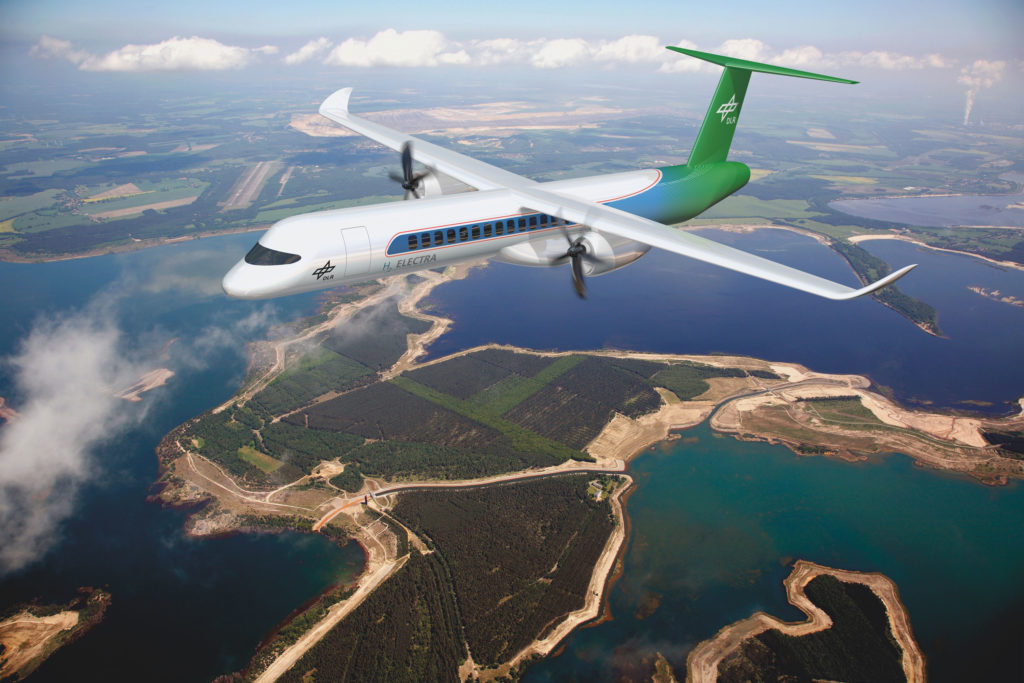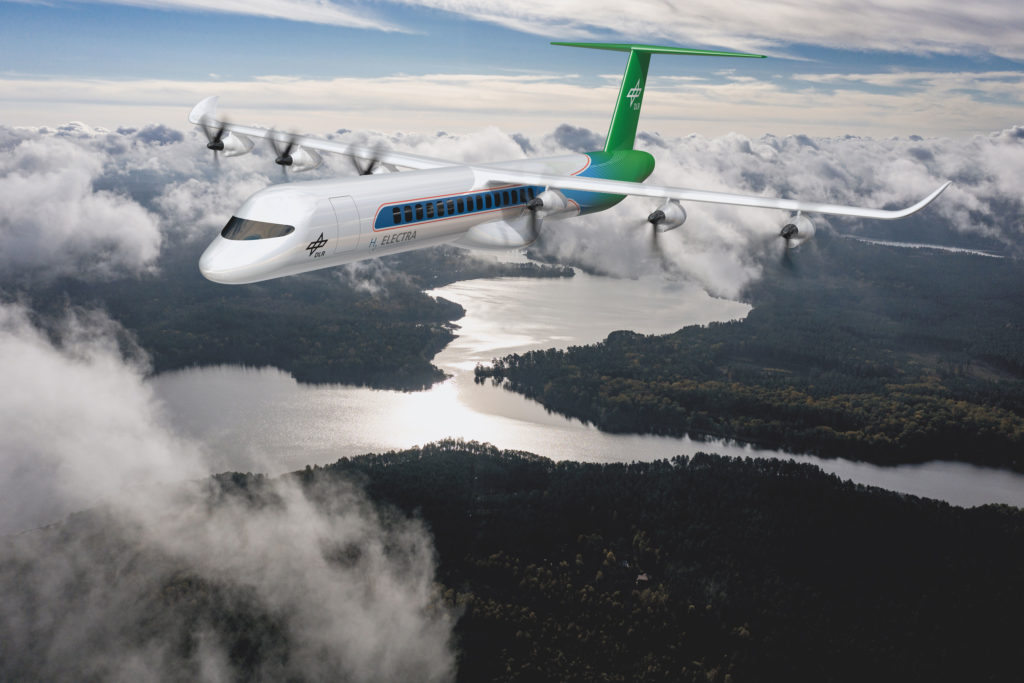Propelling the regional aircraft of the future
The H2ELECTRA model showcases the highly technical complexity of innovative propulsion systems for tomorrow’s aviation. H2ELECTRA is being used to investigate ways of electrifying a regional aircraft using hydrogen. It is designed for a range of around 1850 kilometres with 50 passengers and flies at a speed of Mach 0.5 (approximately 612 kilometres per hour) at an altitude of almost 5000 metres with a payload of six tonnes (50 passengers times 100 kilograms plus 1000 kilograms of freight).
A typical mission would entail transporting passengers and their luggage between cities. The propulsion system is designed to provide sufficient power for every phase of the journey.
Future propulsion concepts offer new possibilities for aircraft design and integration. The model on display shows a propulsion design with an electric propulsion system integrated into the fuselage, whose six propellers generate propulsion via electric motors. The fuselage of the model is designed to be transparent so that visitors can inspect all components of the propulsion system.
The fuselage-integrated solution is just one possible configuration for a future propulsion system. Other configurations are conceivable and will be compared on a common platform with the help of H2ELECTRA at DLR. Possible solutions include stand-alone systems in which an energy carrier and an energy converter provide the required energy: one such system is the fuel cell powered by hydrogen; another is the battery-powered drive.
Another attractive solution could be hybrid concepts with an improved environmental balance. Here, electrical energy generators such as fuel cells or batteries are combined with traditional technologies such as gas turbines or other combustion engines. Innovative energy distribution and operating strategies are in particular used to intelligently utilise individual components to achieve greater overall efficiency.
Links:
German Aerospace Center (DLR)
Institute of Electrified Aero Engines
E-Mail contact-dlr@DLR.de

